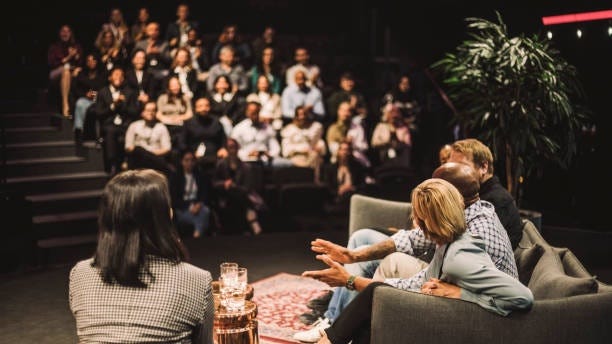
More than 200 military veteran leaders and advocates from 90 cities, five states and Washington, D.C., came together this month to develop new and better ways to serve Michigan veterans and their families.
The second annual Michigan Veterans Leadership Summit was planned and developed by veteran stakeholders from across the state and facilitated by the Michigan Veterans Affairs Agency (MVAA), the central coordinating point for the state’s 530,000-plus veterans.
With 215 attendees, the event was nearly twice as large as last year’s inaugural event.
“This was a true grassroots effort that brought together veteran advocates from across the state to create better coordination of services and to fill gaps in services,” said MVAA Deputy Director Robert Near. “From the county-level Veterans Affairs offices to the Veteran Service Organizations to the U.S. Department of Veterans Affairs, we thank our many partners for their commitment to improving the support and care we offer our veterans.”
The keynote address was given by Jim McCloughan, a South Haven resident and Army veteran who was awarded the Medal of Honor for his heroic efforts as a combat medic in Vietnam. McCloughan said one of the biggest lessons he learned as a newly drafted private was to trust his war-tested noncommissioned officers.
“I may have had a bachelor’s degree at the time, but they had master’s degrees as warriors and I was a kindergartener in that regard,” McCloughan said. “I was smart enough to know how dumb I was. I listened to everything, and I did become a pretty good warrior.”
The summit also provided new information for veterans.
Eric Deters, chief strategy officer of the VA Ann Arbor Healthcare System, said the VA has opened three new Community Based Organizations in the past 18 months -in Canton, Adrian and Howell- and is in the process of opening several more around Michigan to improve access.
An estimated 225,000 Michigan veterans did not receive VA health care services last year. Deters said some veterans believe by signing up for VA health care, they’re taking that spot away from another veteran who may need the care more. But the legislature sets the budget for VA health care based on how many people sign up, meaning if a veteran signs up but doesn’t use the healthcare, he or she is essentially leaving that money on the table for another veteran.
“The best thing you can do for other veterans is to enroll in VA health care,” Deters said.
The summit also included a panel on how to better support underserved veterans, including women veterans, incarcerated veterans and homeless veterans.
Erika Hoover, MVAA’s women veterans and special populations coordinator, said the official estimate of homeless veterans in Michigan is 2,300. However, that number is likely much higher due to issues such as veterans not meeting the federal definition of homeless and homeless women veterans refusing to identify as veterans and seek needed services for fear losing of their children.
Hoover also noted that June 12 is Women Veterans Recognition Day — and the 75th anniversary of women being allowed to serve in the military. She said this is not a separate Veterans Day for women, but instead, a day to recognize that women have not always been allowed to serve openly in the military.


